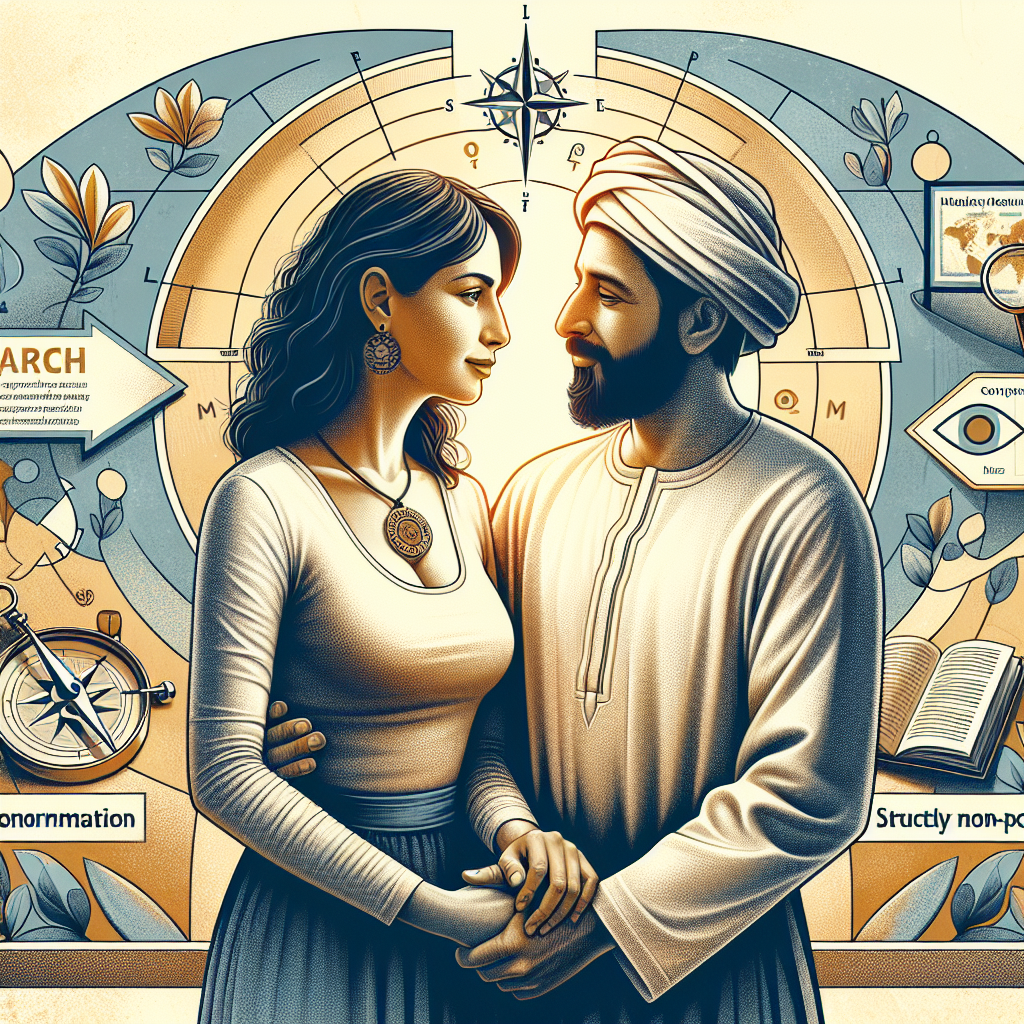Mediation Strategies for Complex Marriages

Mastering Complicated Marriages: Effective Mediation Techniques
Introduction
In any marriage, there are bound to be challenges and conflicts that arise. However, for some couples, these issues can become more complicated and difficult to navigate. In these cases, traditional methods of communication and problem-solving may not be effective. That’s where mediation comes in. Mediation is a process where a neutral third party helps couples work through their conflicts and find solutions that are mutually beneficial. In this article, we will discuss the importance of mediation in complicated marriages and provide strategies for effectively using mediation to improve relationships.
Understanding the Need for Mediation in Complicated Marriages
Complicated marriages often involve deep-rooted issues and complex dynamics that can be difficult to address on one’s own. These issues can range from communication problems and trust issues to differing values and beliefs. In some cases, couples may have also experienced trauma or have unresolved conflicts from the past that are affecting their current relationship.
Traditional methods of communication and problem-solving may not be effective in these situations because the underlying issues are often deeply ingrained and require a different approach. Mediation offers a neutral and safe space for couples to address these issues and work towards finding solutions together.
Identifying Common Issues in Complicated Marriages
Before diving into the mediation process, it’s important to identify the specific issues that are causing conflicts in the marriage. This will allow the mediation sessions to be focused and productive. Some common issues in complicated marriages include:
- Communication problems: This can include difficulties in expressing oneself, not feeling heard or understood, and misunderstandings.
- Trust issues: Trust is the foundation of any relationship, and when it is broken, it can lead to a range of problems in the marriage.
- Differing values and beliefs: Couples may have different values and beliefs that can cause conflicts, especially when it comes to important decisions such as finances, parenting, and religion.
- Unresolved conflicts: Past issues that have not been properly addressed or resolved can resurface and cause problems in the marriage.
- Power imbalances: One partner may feel like they have more control or influence in the relationship, leading to resentment and conflicts.
- Emotional or physical abuse: In some cases, complicated marriages may involve abusive behaviors from one or both partners, which can be extremely damaging to the relationship.
Building Trust and Open Communication through Mediation
One of the key benefits of mediation is that it creates a safe and non-judgmental space for couples to communicate openly and honestly. This can be particularly helpful in complicated marriages where trust and communication may have been eroded.
The mediator’s role is to facilitate open and respectful communication between the couple. They will encourage and guide each partner to share their thoughts and feelings without fear of criticism or rejection. Through this process, trust can be rebuilt, and couples can learn to communicate more effectively with each other.
Fostering Empathy and Understanding in the Mediation Process
In complicated marriages, conflicts can often stem from a lack of understanding and empathy towards each other’s perspectives. In mediation, the focus is on understanding and acknowledging each other’s feelings and needs.
The mediator can help couples see things from each other’s point of view and validate their feelings. This can lead to a deeper understanding and empathy towards each other, which is crucial for resolving conflicts and improving the relationship.
Addressing Individual Needs and Concerns in Complicated Marriages
In addition to addressing the issues in the marriage, it’s also essential to address each partner’s individual needs and concerns. In complicated marriages, one or both partners may have their own personal struggles that are affecting the relationship.
The mediator can provide a safe space for each partner to express their needs and concerns without judgment. This can help in identifying potential underlying issues that may be contributing to the conflicts in the marriage and finding ways to address them.
Finding Common Ground and Compromise in Mediation
In many cases, complicated marriages involve two individuals with different perspectives and needs. This can make it challenging to find common ground and reach agreements. However, in mediation, the focus is on finding solutions that are mutually beneficial for both partners.
The mediator can help couples identify areas where they can compromise and find creative solutions that meet the needs of both partners. This can be particularly helpful in complicated marriages where finding common ground may seem impossible.
Setting Realistic and Achievable Goals for the Future
Mediation is not just about resolving current conflicts but also about setting a foundation for a healthier and more fulfilling future. The mediator can guide couples in setting realistic and achievable goals for their relationship. This can involve identifying areas that need improvement and finding practical ways to work towards those goals.
By setting clear and achievable goals, couples can have a sense of direction and purpose in their relationship, which can help in navigating future challenges.
Utilizing Effective Conflict Resolution Strategies in Mediation
Mediation also provides couples with the opportunity to learn and practice effective conflict resolution strategies. These strategies can be applied in the mediation sessions and also in the couple’s day-to-day interactions.
The mediator can teach couples how to communicate effectively, listen actively, and resolve conflicts peacefully. These skills can be invaluable in complicated marriages where conflicts may arise frequently.
The Benefits of Effective Mediation in Complicated Marriages
Complicated marriages can be challenging to navigate, but mediation can provide couples with the tools and support they need to improve their relationship. By building trust, open communication, understanding, and empathy, and addressing individual needs and concerns, couples can find common ground and compromise in resolving conflicts. Mediation also offers a safe and non-judgmental space for couples to learn and practice effective conflict resolution strategies. Overall, effective mediation can help couples build a stronger and healthier relationship for the future.



